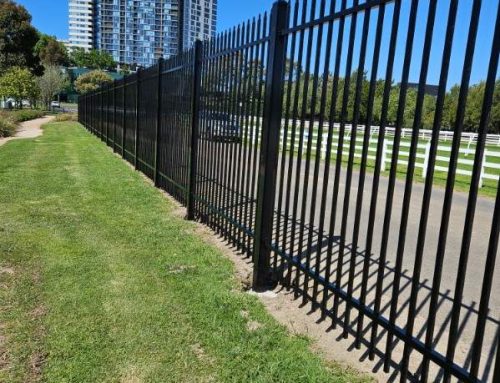Obligations When It Comes To Sharing A Fence With Your Neighbour
Do you live in a lovely Melbourne suburb? Then most likely you are sharing a fence with your neighbour, or maybe even neighbours on both sides of your house. You might get along well, be friends or maybe strangers overall. When it comes to upgrading or fixing your fence that has been dividing two or three households for many years, then sometimes not knowing the legal obligations can make the relationships worse. We don’t want that, do we?
To avoid any of the worse case scenarios, there are things you should know about when it comes to sharing fencings costs with your neighbours. Once you have those basics figured out, the replacing or repairs of your fence should go smoothly.
Fencing Law in Victoria will help us out with the rules about who should pay for a dividing fence, decide the type of fence to be built, is there any obligation for neighbours to give notice to one another, and how to resolve disputes regarding fencing works.
Below is all you need to know if you are planning to upgrade or repair the fence that has been dividing you with your neighbour(s). Pay attention!
Firstly, let’s define a dividing fence. It’s a fence that has been built to separate two pieces of adjoining land. The location of the fence can be located on the common boundary, but may also not, depending on if there are any obstructions or waterways on the common boundary that might block the installation of the fence. That decision has to be made between the neighbours.
The Fences Act states quite clearly what to do when you are planning to install or repair the dividing fence.
1. I want to build a dividing fence or the existing fence needs repairing, do I need to ask permission from my neighbour?
Yes. According to the Fences Act, neighbours are responsible for shared fences. That means both of you have to agree on the style, cost and timing of the fence installation or fence repair works.
Few of the following things should be agreed upon:
• the amount of how much each of you will pay
• whether the fence should be repaired or a new fence should be installed
• the characteristics of the fence (height, material, colour)
•timeframes for the fence’s repair or fence installation;
•who will be responsible for contacting the fence contractor, getting the fencing quotes, and arranging the fencing contractor to come and do the fencing work
•other costs involved (removal of the old fence etc.)
•who gets the “flat side” of a timber fence.
PS! The Fences Act states that the rails and framing should be placed on the same side as the previous dividing fence. In all other cases, the rails and framing should be placed on the side least subject to weathering. It’s up to owners to decide among themselves on which side they should be installed.
2. Do I need to follow the Fences Act?
To avoid any misunderstanding, we do recommend following the Fences Act. If you have agreed with your neighbour on the factors above, you may go ahead and install or repair the fence. Just to be safe, have it in writing.
3. What if I can’t reach my neighbour?
If you find that installing a new fence, or getting the old one repaired is an urgent matter, and you have tried to get in contact with your neighbour, but have been unsuccessful, then the Fences Act provides a formal process involving a written notice, called a “fencing notice”, to assist.
The fencing note is an important document that can be formed by yourself, without the help of a lawyer. You just have to make sure it will include the following:
•where the fence should go;
•the type of fencing works to be done;
•who will be the fencing contractor;
•an estimate and explanation of the cost of the fencing ;
•contribution proportions (who will pay how much)
Once the fencing notice has been done, you can pass it on in person or by post.
If your neighbour will agree, then happy days! If not, then the discussion will carry on. If your neighbour will ignore you instead, then after 30 days you will have the right to proceed with the fencing works.
4. What if I’ve built the fence, but my neighbour refuses to pay?
If you followed the Fence Act, issued the fencing notice, didn’t hear anything back in 30 days, then proceeded with the fencing works or did the works without getting their agreement, then you will need a Magistrates’ Court order.
5. Who has to pay for the fence?
The Fence Act clearly states that the owners must contribute in equal proportions to a “sufficient dividing fence”.
50-50 is a way to go, and this is how it usually goes. You are in a bit of a pickle there if your neighbour will want to go big and get a fancy extravagant fence that you do not agree with.
If you are in a deadlock situation and cannot make the decision, then you might need to go to court who will make an order on how to resolve the issue. In some cases, if you are the neighbour who wants that fancy expensive fence to be built, you might agree to pay a little bit extra to avoid going to court, which might be even more expensive.
Hopefully, today’s topic has been beneficial and now you got the basic knowledge about the fencing disputes between neighbours. If you have agreed to install a new fence or get the old fence repaired, then turn to Diamond Fence. We will get it sorted in no time!
Give us a call on (03) 9753 4566, shoot us an email on info@diamondfence.com.au or just get a FREE online quote.








